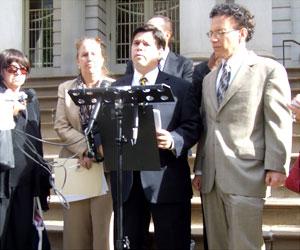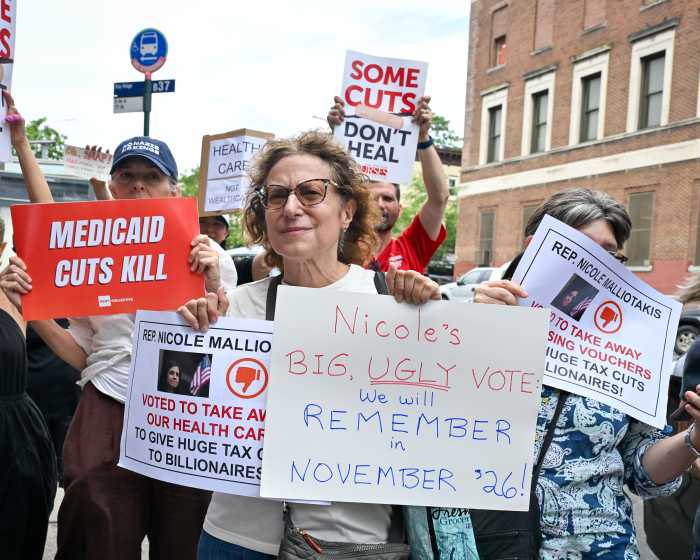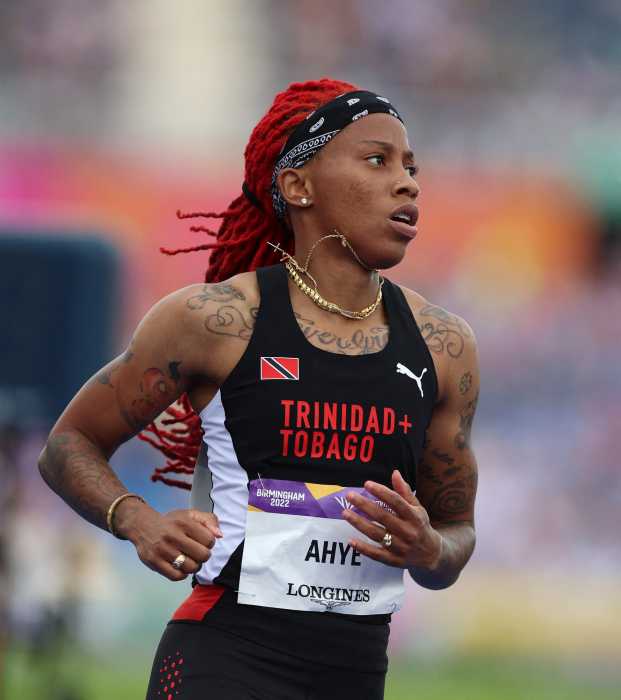The struggle to limit the proliferation of cell phone antennae in New York City has been a frustrating one.
Given the broad latitude provided to cell phone companies by the Federal Telecommunications Act of 1996, activists and local legislators have been largely hamstrung in their efforts to address, in particular, the potential health effects of the installation.
Now, one city councilmember is hoping he has found an approach that is in keeping with the narrow parameters of the federal legislation but which will allow the city to monitor emissions from the antennae.
City Councilmember Vincent Gentile last week introduced legislation that would require the city’s Department of Buildings (DOB) — which issues permits for the antennae — to monitor the radiofrequency radiation emitted by the cell phone antennae in the city every six months, reporting on those whose emissions exceed the federal guidelines.
Reports on noncompliance of specific antennae derived from DOB’s oversight would be sent to both the city councilmember and the community board in whose area the antennae in question are located, as well as to the overseeing federal agency, usually the Federal Communications Commission (FCC), according to the bill, Intro 1087.
The legislation, said Gentile, “Really goes to the heart of the issue. It sort of challenges the preemption the federal government has imposed on localities with respect to not denying the location of cell towers based on health concerns if the towers met federal guidelines.”
One of the biggest problems with the federal regulation, said Gentile, is that, while antennae are supposed to meet federal emissions guidelines, no one actually checks whether they do. Rather, the companies themselves simply “affirm that the equipment is in compliance with FCC regulations.”
Once they do that, Gentile went on, they “automatically qualify for the FCC exemption” that prohibits localities from denying the placement of antennae based on health concerns, even though, as he noted, “Health concerns are the predominant complaint we get” about the installations.
Should the bill become law, Gentile added, “I think we will be in a much better position to fight cell phone towers, both those that are proposed and those that are already up.”
If the bill passes, it shouldn’t cost taxpayers any additional money, Gentile said. This is because the funds needed to pay for the additional oversight could be raised by increasing permit fees now charged to telecommunications companies for the installation of antennae, something that is permitted by the City Charter. There’s plenty of room for an increase in the fees to cell phone companies, he added. While nearby localities assess fees in the thousands of dollars, Gentile said, New York City charges an average of $380 to permit an antenna, which, he stressed, is “ridiculously low.”
Currently, the bill has 11 co-sponsors, besides Gentile. Among them are four Brooklyn Councilmembers, Charles Barron, Lewis Fidler, Letitia James and Mike Nelson.
“We’re adding co-sponsors every day,” Gentile noted, pointing out that councilmembers from around the city are on board, demonstrating “broad support” for the legislation.























